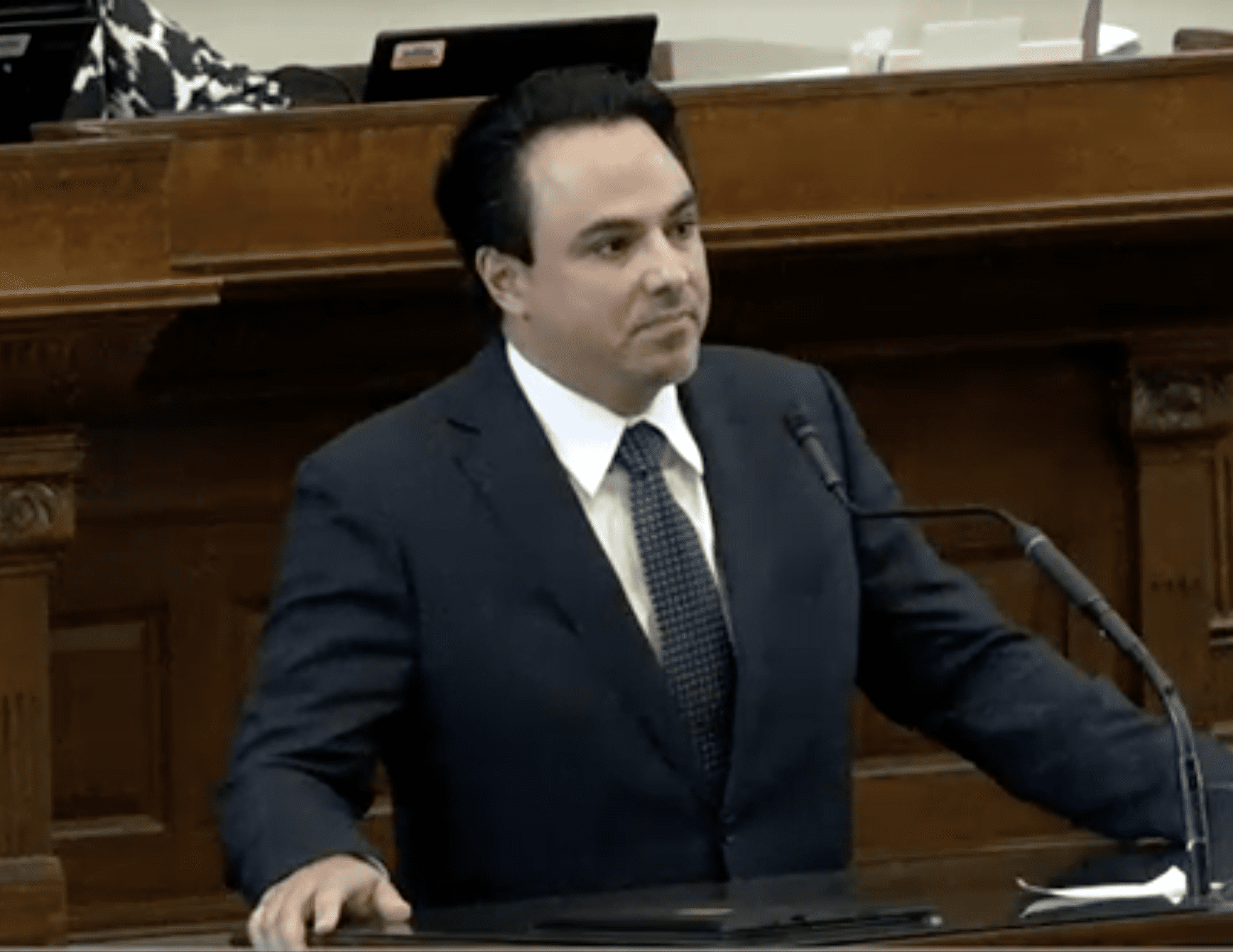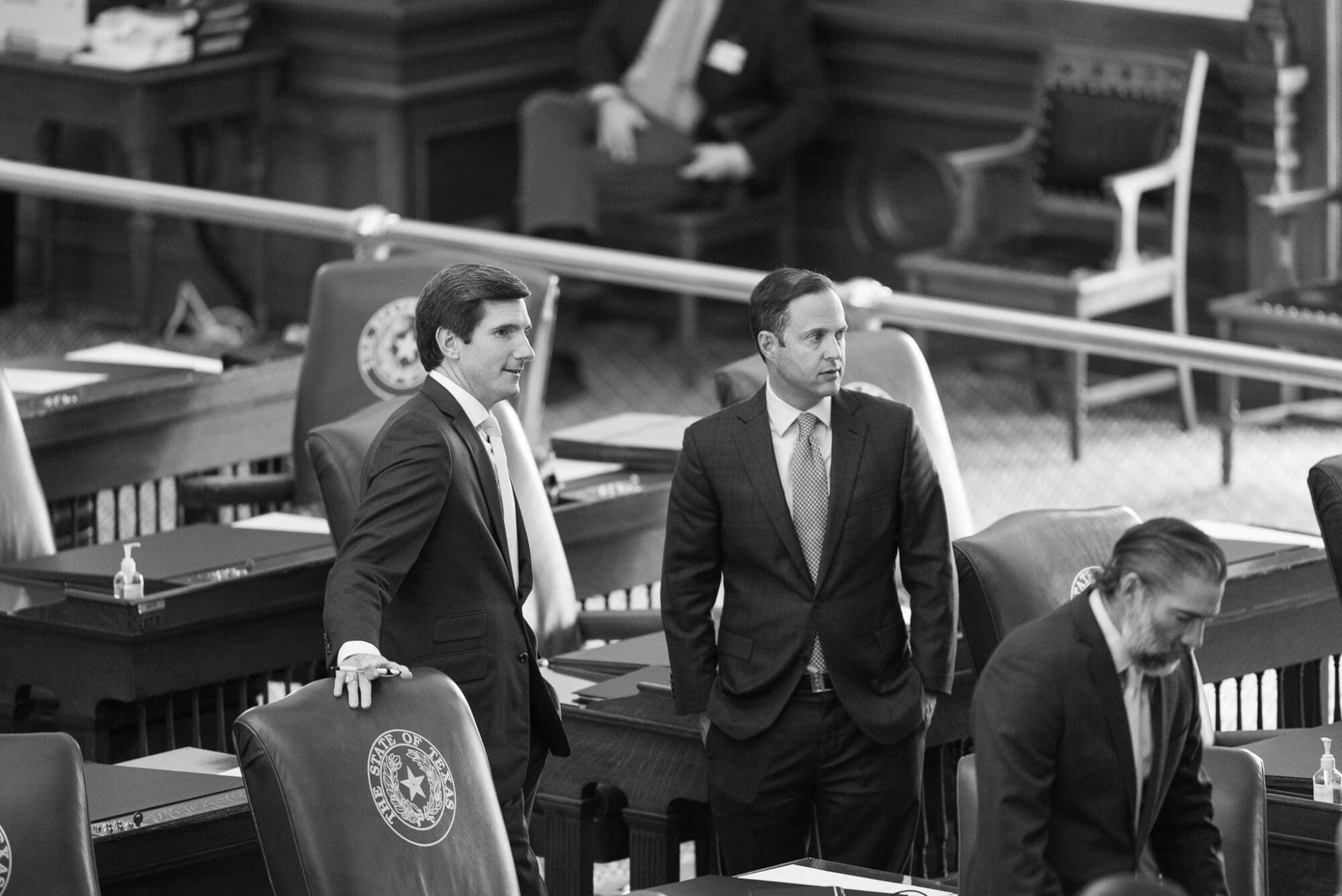For the third session in a row, State Rep. Terry Canales, a Democrat from Edinburg, has been appointed to chair the Transportation Committee in the Republican-controlled Texas House of Representatives.
Canales was first appointed to chair this committee by former Speaker Dennis Bonnen in 2019 and then again by Speaker Dade Phelan (R–Beaumont) during the current and previous sessions.
A member of the Texas House since 2013, Canales is an attorney and the sixth member of his extended family to be elected to the office of state representative. His grandfather José Tomás Canales served five terms between 1905 and 1921 and was a founding member of the League of United Latin American Citizens, or LULAC.
Canales was the author of a constitutional amendment that authorizes counties to issue bonds for transportation projects in “unproductive, underdeveloped, or blighted” areas through the creation of “transportation reinvestment zones,” designated geographical areas from which incremental property tax revenue is allocated to the payment of these bonds. This method of financing has been available to Texas cities since 1981; voters extended this authority to counties in 2021 when they approved the constitutional amendment delineated in Canales’ House Joint Resolution 99.
The amendment is very similar to one defeated by voters in 2011, the most significant difference between the two being the proposition language that appeared on election ballots. Proposition 4, which was opposed by 59.7 percent of Texas voters in 2011, stated that bonds could be repaid through “increases in ad valorem taxes imposed by the county on property in the area.” This language was stripped from Proposition 2 ten years later, and it passed with 63.1 percentsupport.
Although Sen. Bob Hall (R–Edgewood) tried to restore the 2011 ballot language to Canales’ bill, he was overwhelmingly voted down, lending credence to the previous amendment author’s assessment that its mention of tax increases was the primary reason it failed.
Interestingly, the Texas Republican Party and the House Freedom Caucus published statements calling on voters to reject Proposition 2, but a majority of Republican lawmakers in both the House and Senate—including most Freedom Caucus members—voted for HJR 99.
After the amendment’s passage, a number of grassroots organizations sued the state, alleging that the language violated the requirement in state law that a proposition identify the corresponding measure “with such definiteness and certainty that the voters are not misled.” The lawsuit, which seeks the invalidation of the election results, has yet to be resolved.
While the passage of HJR 99 was Canales’ most significant accomplishment during the 2021 legislative session, it wasn’t his only one. He pushed through his committee several bills that raise fees and increase penalties for drivers, and he authored a bill that allows the state to issue additional bonds from the Texas Mobility Fund, which is used to secure more than $85 billion in current debt. Canales also denied votes on bills that would have removed tolls for roads that have been paid off, simplified toll road billing practices, and decriminalized failure to pay tolls.
Terri Hall, the executive director of the transportation watchdog group Texans Uniting for Reform and Freedom, acknowledged that “it’s challenging to navigate the tricky waters when you’re dealing with a chair that’s the opposite party of the base of our group.” Still, she expressed optimism that some of their main objectives, like the banning of vehicle kill switches, could be passed into law.
While Canales participated in the quorum break aimed at stopping the passage of election integrity legislation at the end of the 2021 regular session and during the subsequent special sessions, he did not flee to Washington, D.C., with the majority of his Democrat colleagues. He was absent when the bill finally came up for a vote on the House floor, but he indicated in a statement that he would have voted against the measure if he were present.
In 2019, during debate over a bill that sought to crack down on illegal aliens falsely representing children as family members when apprehended at the border, Canales successfully added an amendment extending Medicaid coverage to children used in the commission of this offense. The bill author didn’t object to the amendment, so a vote was not requested, but the provision was later stripped from the bill in the Senate.
One issue on which Canales appears to agree somewhat with conservatives is Second Amendment rights.
Although he opposed legislation to allow law-abiding Texans to openly carry a handgun in 2015, he was a joint author for a bill that removed the prohibition against carrying without a permit in 2021. During the debate on House Bill 1927, Canales said it was a “criminal justice reform bill” that would “keep people out of jail” by providing more consistency to the “hodgepodge” of “gotcha” laws in Texas regarding handguns.
Canales has a career rating of F from Texans for Fiscal Responsibility and 24/100 from Young Conservatives of Texas. Last session, he earned an A+ from Equality Texas and a 62/100 from the Sierra Club.
Texans concerned about Canales’ appointment can find contact information for House Speaker Phelan in Texas Scorecard’s Elected Officials Directory.
No ads. No paywalls. No government grants. No corporate masters.
Just real news for real Texans.
Support Texas Scorecard to keep it that way!





